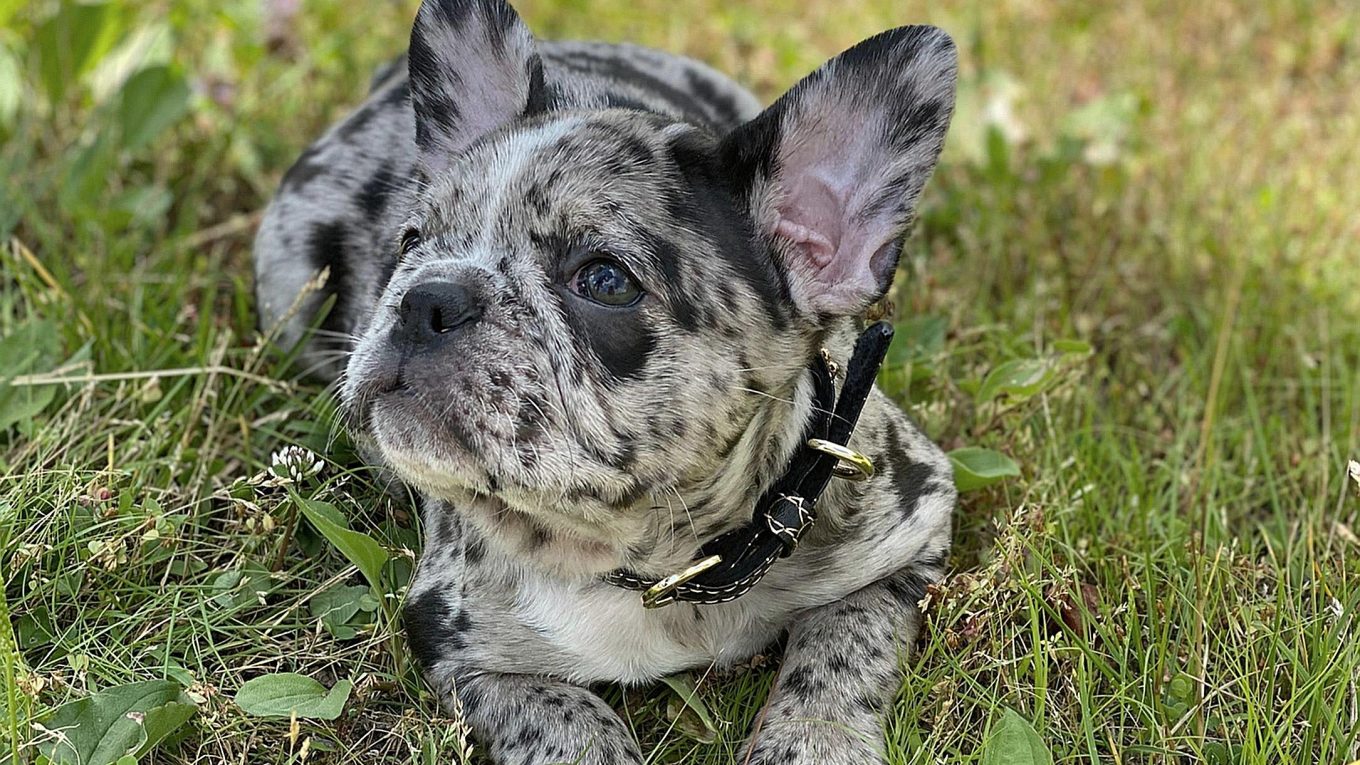Are French Bulldogs a bully breed?
French Bulldogs, those little bundles of joy with their squishy faces and wiggly tails, have stolen the hearts of dog lovers all over the world.
But here’s the thing: there’s a hot debate going on about whether French Bulldogs should be classified as a bully breed. You know, those tough-looking dogs that often get a bad rap.
It’s easy to see why people might think Frenchies are part of that crew, what with their muscular bodies and those ears that look like they belong on Batman. So, let’s dive into the fascinating world of French Bulldogs and figure out once and for all if they’re really bullies or just misunderstood sweethearts.
Get ready to uncover some mind-blowing facts and gain a whole new perspective on these adorable four-legged friends.
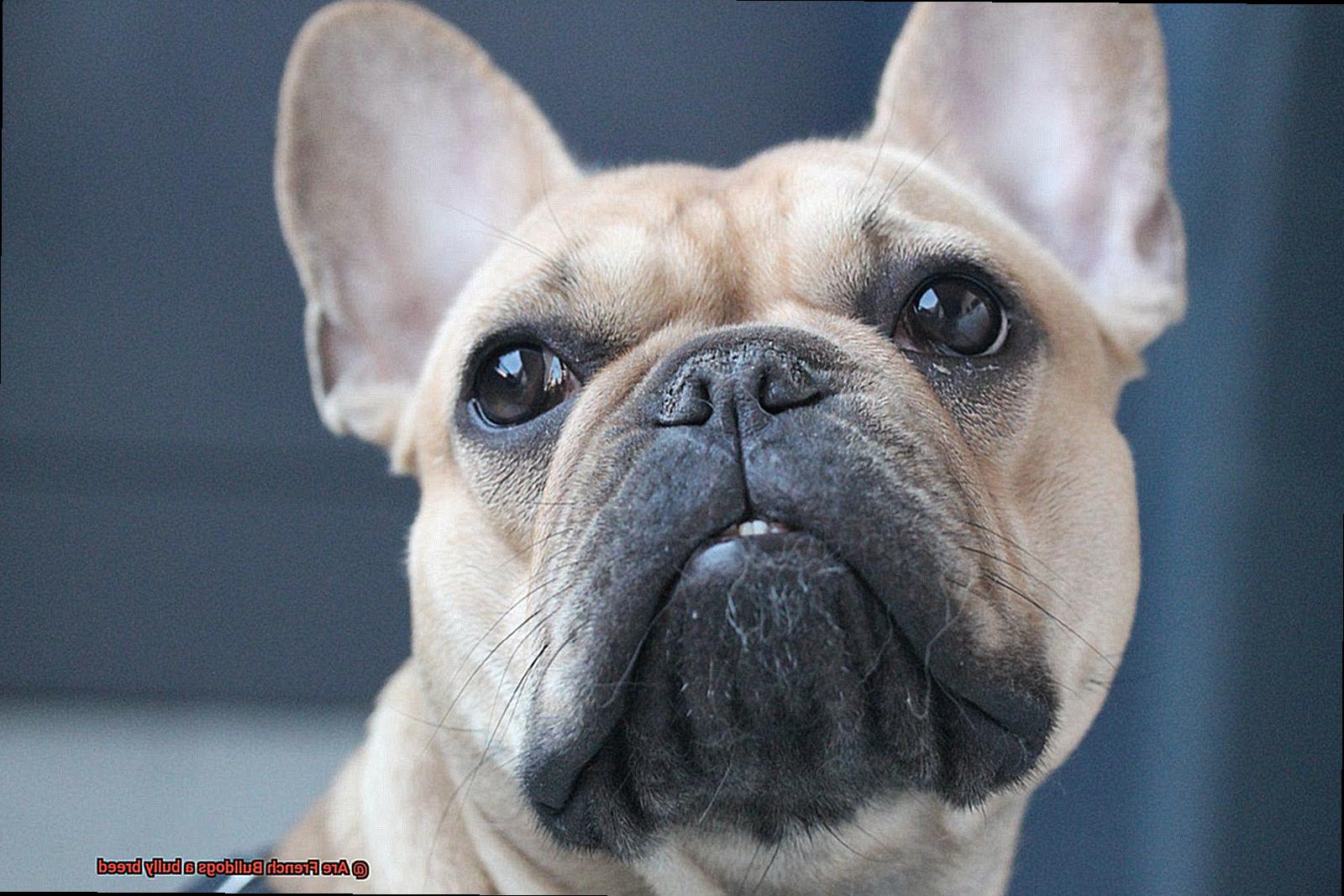
Are French Bulldogs Bully Breeds?
Contents
- 1 Are French Bulldogs Bully Breeds?
- 2 The History of French Bulldogs
- 3 Physical Characteristics of French Bulldogs
- 4 Temperament and Behavior of French Bulldogs
- 5 Training and Socialization for French Bulldogs
- 6 Misconceptions About French Bulldogs Being Bully Breeds
- 7 Why Do People Mistake French Bulldogs as Bully Breeds?
- 8 Advantages and Disadvantages of Owning a French Bulldog
- 9 Conclusion
French Bulldogs are beloved for their adorable appearance and friendly nature. However, due to their muscular build, some people may mistake them for bully breeds. In this blog post, we will explore the differences between French Bulldogs and bully breeds, providing insights based on research and first-hand experiences to clarify any misconceptions. So, if you’re a proud owner of a French Bulldog or considering getting one, keep reading to learn more about these delightful companions.
French Bulldogs vs. Bully Breeds: Physical Characteristics:
French Bulldogs have a stocky build, broad chest, and a strong jawline, which can give the impression of being a bully breed. However, it is important to note that French Bulldogs are not classified as bully breeds. Unlike bully breeds such as the American Pit Bull Terrier or English Bulldog, French Bulldogs were bred primarily for companionship rather than aggression.
Temperament: Gentle and Easygoing:
French Bulldogs have a reputation for being gentle and easygoing. They are sociable dogs who get along well with children and other animals. Their friendly nature makes them unsuitable as guard dogs or aggressive companions. In contrast, bully breeds were originally bred for bull-baiting and may exhibit more assertive or dominant behavior.
Training and Socialization:
While French Bulldogs have a friendly temperament, it is important to provide them with proper training and socialization from an early age. This helps them develop good manners, adaptability, and prevents any potential behavioral issues. Positive reinforcement training methods work best for French Bulldogs, as they respond well to praise and rewards.
Responsible Ownership:
Owning any dog comes with responsibilities, and French Bulldogs are no exception. They require regular exercise, mental stimulation, and proper care to thrive. Additionally, due to their unique physical characteristics such as brachycephalic (shortened) muzzle and compact body structure, they may be prone to certain health issues. Regular veterinary check-ups and a balanced diet are essential for their well-being.
The History of French Bulldogs
Origins in England
Picture this: it’s the 1800s in England, and lace workers in Nottingham are looking for a furry companion to keep them company during long hours of work. Enter the English Bulldog, with its sturdy build and endearing personality. Miniature versions of these Bulldogs were bred to create a more manageable size for the lace workers. Little did they know, this was the beginning of the French Bulldog’s story.
Development in France
As the Industrial Revolution took hold, lace workers migrated to France, and they didn’t leave their beloved Bulldogs behind. In fact, they brought them along for the journey. Once in France, the breed gained traction and underwent further development. French breeders introduced their own touches, resulting in the distinctive traits we associate with French Bulldogs today.
Recognition by the American Kennel Club
Across the pond, French Bulldogs were making waves. The French Bulldog Club of America was established in 1897 to promote and protect the breed. Just a year later, in 1898, the American Kennel Club (AKC) recognized French Bulldogs as an official breed. Since then, they’ve become one of the most cherished companion dogs around the world.
Popularity and Appeal
What makes French Bulldogs so irresistible? Their unique appearance, compact size, and friendly temperament all contribute to their popularity. Their bat-like ears, expressive eyes, and trademark “smushy” face make them stand out in a crowd. Plus, their amiable nature and love for human companionship make them fantastic family pets.
Physical Characteristics of French Bulldogs
If you’re a proud owner of a French Bulldog, you’re well aware of their unique physical characteristics that make them stand out in a crowd. These little pups may be small in stature, but their presence is anything but subtle. Let’s dive into the details of what makes French Bulldogs so visually captivating.
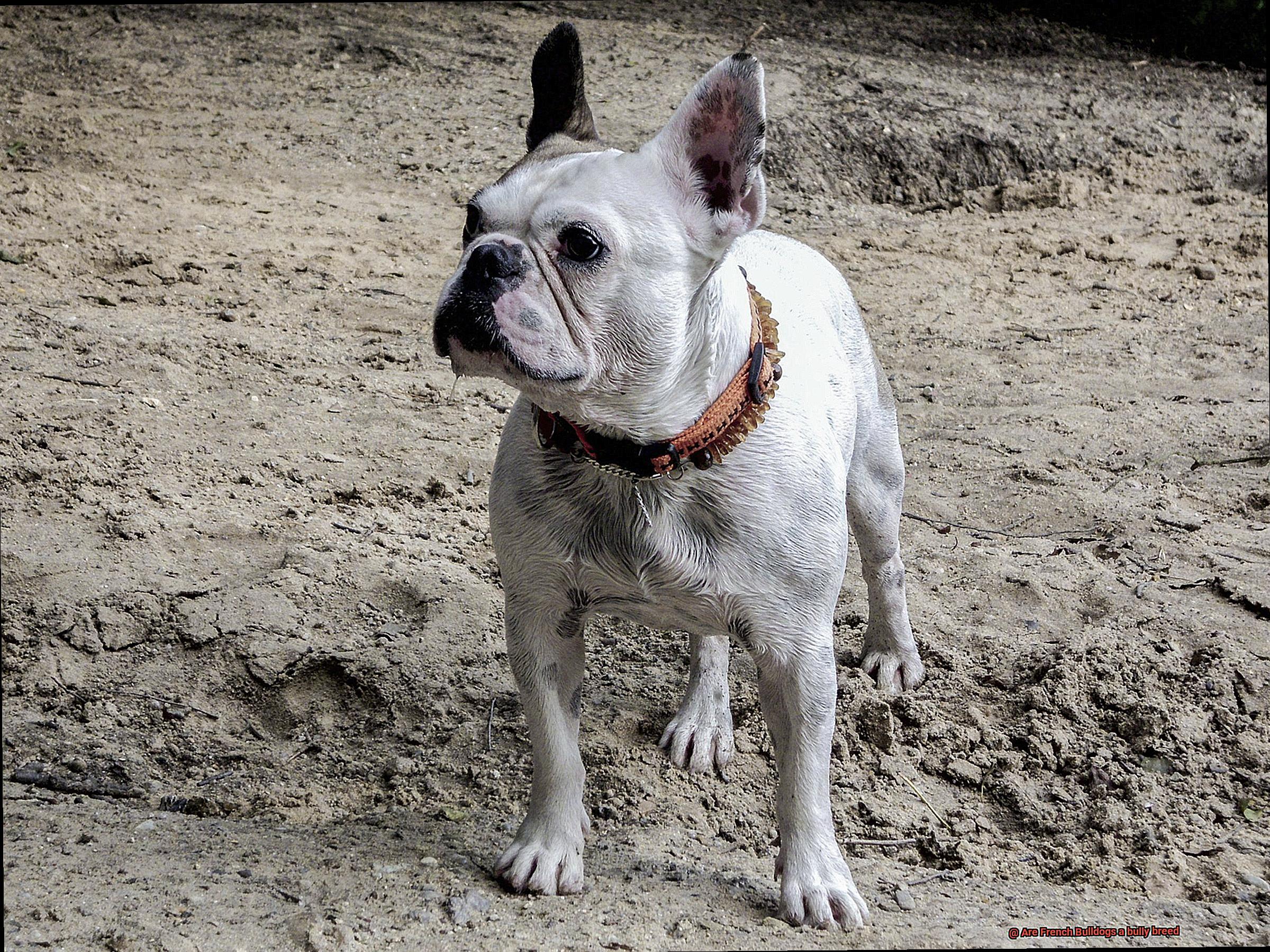
Sturdy and Strong Build:
French Bulldogs may be pint-sized, but don’t let their small stature fool you. These dogs have a compact and muscular build that radiates strength and power. With a broad chest and strong legs, they are built to command attention wherever they go.
Square-shaped Head:
The head of a French Bulldog is one of its defining features. Their square-shaped head, combined with a flat, wrinkled face, gives them an adorable pug-like appearance. It’s hard not to fall in love with those expressive eyes and smushy face that simply melts your heart.
Bat-like Ears:
Another prominent feature of French Bulldogs is their large, bat-like ears. These perky ears are set high on their head and add to their overall charm. They are always ready to catch every sound and make sure they don’t miss a beat.
Short Nose and Breathing Challenges:
One thing to keep in mind when it comes to French Bulldogs is their brachycephalic nature. Their short nose can make breathing challenging for them, especially in hot or humid weather. It’s important to be mindful of their need for proper ventilation and take necessary precautions to ensure their comfort.
Variety of Coat Colors:
French Bulldogs come in a variety of coat colors and patterns, adding to their visual appeal. From the classic brindle and fawn shades to cream and pied combinations, there’s a French Bulldog for every color palette preference. Some may even sport a mask-like pattern on their face, enhancing their already charming looks.
Compact Size:
French Bulldogs are considered a small breed, making them ideal for apartment living. They typically weigh between 16-28 pounds and stand about 11-12 inches tall at the shoulder. Their compact size doesn’t hinder their ability to be excellent companions, though. In fact, their small stature only adds to their charm and makes them even more lovable.
Now that we’ve explored the physical characteristics of French Bulldogs, it’s clear why they have become such beloved companions around the world. Their unique appearance, combined with their friendly and affectionate nature, make them a perfect fit for any family or individual looking for a loyal and charismatic furry friend.
Temperament and Behavior of French Bulldogs
French Bulldogs are the epitome of a “people-oriented” breed. They thrive on human connection and crave attention and companionship. Your Frenchie will always be by your side, ready to snuggle up and shower you with love. Their affectionate nature makes them excellent lap dogs and loyal companions.
Playfulness and Curiosity:
Despite their small size, French Bulldogs have a larger-than-life personality. They are playful and entertaining, often putting on a show with their hilarious antics. Their natural curiosity drives their desire to explore their surroundings, making every day an adventure with your furry friend.
Interactions with Children and Other Pets:
French Bulldogs are known for their patience and tolerance, making them great family pets. They get along famously with children, even the little ones who may not know how to handle a dog properly. Your Frenchie will happily join in on playtime and be a loyal playmate for your kids. They also tend to be amiable with other pets, fostering a harmonious household.
Potential Stubbornness and Independence:
Now, let’s address the elephant in the room – French Bulldogs can be a tad stubborn and independent. This can make training a bit more challenging compared to other breeds. However, with consistent and positive reinforcement training methods, you can conquer any training hurdles and enjoy a well-behaved Frenchie.

Protective Tendencies:
French Bulldogs have a protective streak when it comes to their families. While they are not typically aggressive, their territorial instincts kick in, making them excellent watchdogs. They’ll alert you if anything seems amiss, but rest assured, their protective nature is rooted in love for their pack.
Exercise Requirements:
French Bulldogs are generally low-energy dogs, making them suitable for apartment living or homes without yards. They don’t require excessive exercise or long walks, but they do enjoy short daily walks or playtime to keep their minds and bodies stimulated. A tired Frenchie is a happy Frenchie.
Training and Socialization for French Bulldogs
French Bulldogs are adorable, lovable, and full of personality. But just like any other breed, they require proper training and socialization to ensure they grow up to be well-behaved and balanced companions. In this blog post, we will explore why training and socialization are crucial for French Bulldogs, as well as provide some tips and insights based on my first-hand experience as a French Bulldog owner.
Training: Unlocking the Potential
French Bulldogs are known for their intelligence and eagerness to please their owners. However, they can also be a little stubborn at times. That’s why positive reinforcement techniques work best with this breed. Use treats, praise, and rewards to encourage good behavior and reinforce commands. Keep training sessions short and engaging, focusing on one command at a time. Consistency is key in order to avoid confusion and maintain desired behaviors.
Socialization: The Key to a Well-Adjusted Frenchie
Socialization is equally important for French Bulldogs. Early socialization involves exposing them to different people, animals, and environments from a young age. This helps them develop confidence and adaptability, reducing the chances of aggressive or fearful behaviors later in life. Take your Frenchie to puppy classes or obedience training courses where they can interact with other dogs in a controlled environment. Introduce them to various sounds, sights, and experiences to broaden their horizons.
Establishing Leadership: The Pack Mentality
French Bulldogs thrive on structure and clear boundaries. As their owner, it’s important to establish yourself as the pack leader in their life. Set rules and consistently enforce them. Teach basic obedience commands like sit, stay, come, and heel from an early age to establish good behavior patterns. Crate training can also be beneficial for housebreaking purposes and providing a safe space for your Frenchie.
Exercise: A Happy Frenchie is a Well-Behaved Frenchie
Although French Bulldogs are not high-energy dogs, they still require daily exercise to maintain their physical and mental well-being. Regular walks, playtime, and interactive toys can help prevent boredom and destructive behaviors. Engaging your Frenchie in mentally stimulating activities like puzzle toys or obedience training sessions can also tire them out and keep their minds sharp.
In conclusion, training and socialization are essential for French Bulldogs to ensure they become well-behaved and balanced companions. Consistent training using positive reinforcement techniques, along with early and ongoing socialization, can help prevent any bully-like behaviors that may arise in this breed. Remember to be patient, firm, and consistent in your training approach, and provide your Frenchie with plenty of opportunities for exercise and mental stimulation. With proper training and socialization, your French Bulldog can grow up to be a friendly and well-adjusted member of your family.
Misconceptions About French Bulldogs Being Bully Breeds
When it comes to French Bulldogs, there are many misconceptions that often lead people to believe they are bully breeds. However, as an expert in the field, I can confidently say that these misconceptions couldn’t be further from the truth. Let’s dive into the reasons why French Bulldogs are not considered bully breeds.
Appearance Can Be Deceiving, but Temperament Matters
French Bulldogs may have a muscular build and a broad chest, which could give off a strong and intimidating vibe. However, it’s essential to remember that looks can be deceiving. French Bulldogs are known for their friendly and affectionate nature. They are far from aggressive and actually thrive on human companionship. So, don’t let their appearance fool you.
French Bulldogs vs. True Bully Breeds: The Energy Levels
One common misconception is that French Bulldogs share the same high energy levels and prey drive as true bully breeds like the American Pit Bull Terrier or the Staffordshire Bull Terrier. In reality, French Bulldogs tend to be more laid-back and have a lower energy level. This makes them less likely to engage in aggressive behaviors towards other animals.
The Clownish Nature of French Bulldogs
French Bulldogs have a playful and entertaining nature that has earned them the nickname “clowns” among enthusiasts. They love to make their owners laugh and have a fantastic sense of humor. This happy-go-lucky attitude is far from the aggressive traits associated with bully breeds.
The Role of Responsible Breeding and Socialization
Aggression in any dog breed is primarily a result of poor breeding, lack of socialization, or mistreatment. It’s crucial to understand that French Bulldogs, when properly bred and raised in a loving environment, are unlikely to exhibit aggressive behavior. Responsible breeding practices and early socialization play a significant role in shaping a dog’s temperament.
French Bulldogs: Companions, Not Fighters
French Bulldogs are not typically used for dog fighting or any other aggressive activities. Their main purpose is to be companion animals and provide love and companionship to their owners. Their affectionate and sociable nature makes them excel in this role.
French Bulldogs vs. Bulldogs
The misconception of French Bulldogs being bully breeds may also stem from confusion with the term “bulldog,” which is a general term used to describe a group of dog breeds characterized by their muscular build and distinct facial features. However, French Bulldogs are separate and distinct from true bully breeds like the American Bulldog or the English Bulldog.
Why Do People Mistake French Bulldogs as Bully Breeds?
Their muscular build and stocky body often lead people to mistake them as bully breeds. In this blog post, we will explore the reasons behind this misconception and shed light on the distinct characteristics of French Bulldogs that differentiate them from bully breeds.
Appearance:
One of the main reasons why people mistake French Bulldogs for bully breeds is their appearance. With their broad chest, strong neck, and large head, French Bulldogs have a similar physical build to bully breeds like American Bulldogs or Pit Bulls. This resemblance can create confusion among those who are not familiar with the specific traits of each breed.
Popularity of Bully Breeds:
The popularity of bully breeds in recent years has also contributed to the misconception. Media attention, both positive and negative, has often highlighted the strength and sometimes aggressive behavior of bully breeds. This has led to a generalization that any dog with a similar appearance must possess the same temperament and characteristics as bully breeds.
Lack of Awareness and Education:
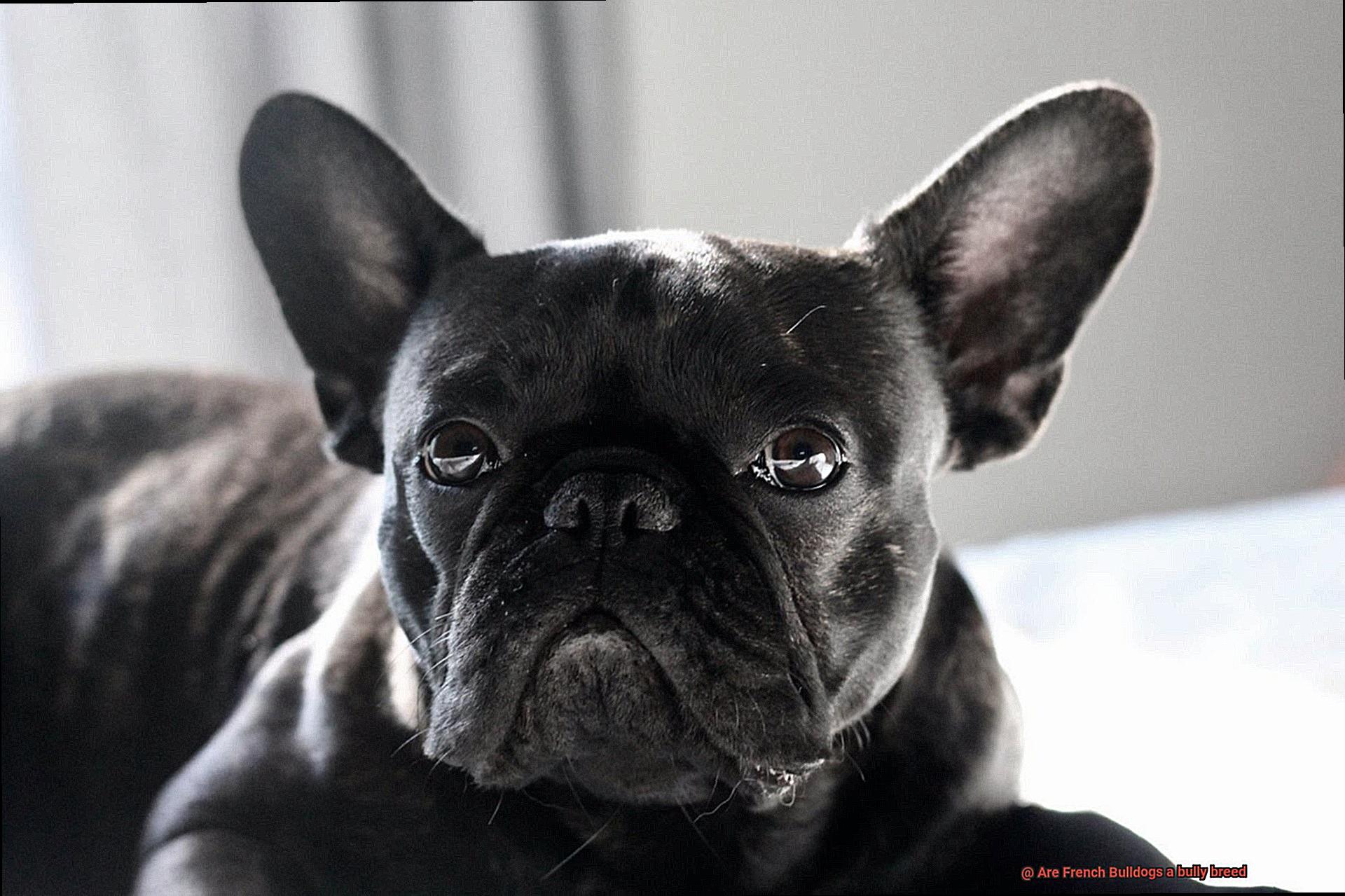
Another factor that contributes to the confusion is the lack of awareness and education about different dog breeds. Many people may not be familiar with French Bulldogs and their distinct traits. They may not realize that French Bulldogs are actually a small companion breed that was originally bred for companionship rather than aggression.

Misrepresentation in Popular Culture:
Additionally, French Bulldogs have been commonly used in popular culture as symbols of toughness or aggression. Movies, television shows, and advertisements often feature French Bulldogs in a way that portrays them as tough or intimidating. This further perpetuates the misconception that they are bully breeds.
Differentiating Characteristics:
It is important to note that while French Bulldogs may have physical similarities to bully breeds, their temperament is quite different. French Bulldogs are known for their friendly and affectionate nature. They are generally sociable, adaptable, and get along well with children and other animals. They are not typically aggressive or prone to bullying behavior.
Advantages and Disadvantages of Owning a French Bulldog
French Bulldogs, or “Frenchies” as they are commonly known, have become increasingly popular as pets in recent years. Their adorable appearance, friendly nature, and low exercise requirements make them an appealing choice for many individuals and families. However, like any other breed, there are both advantages and disadvantages to owning a French Bulldog. Let’s explore them in more detail.
Advantages:
- Affectionate and loving: French Bulldogs are known for their affectionate nature. They love to snuggle up with their owners, showering them with love and attention. Their friendly and outgoing personality makes them great companions for people of all ages.
- Low exercise requirements: Unlike some other breeds that require hours of exercise each day, French Bulldogs have relatively low exercise needs. They are content with short walks or play sessions, making them suitable pets for individuals or families with a more sedentary lifestyle.
- Good with children: French Bulldogs are generally good with children. They are patient and gentle, making them ideal family pets. They form strong bonds with kids and often become their loyal protectors.
- Compact size: French Bulldogs have a small and compact size, which makes them suitable for apartment living or homes with limited space. Their size also makes them easier to handle and transport when necessary.
Disadvantages:
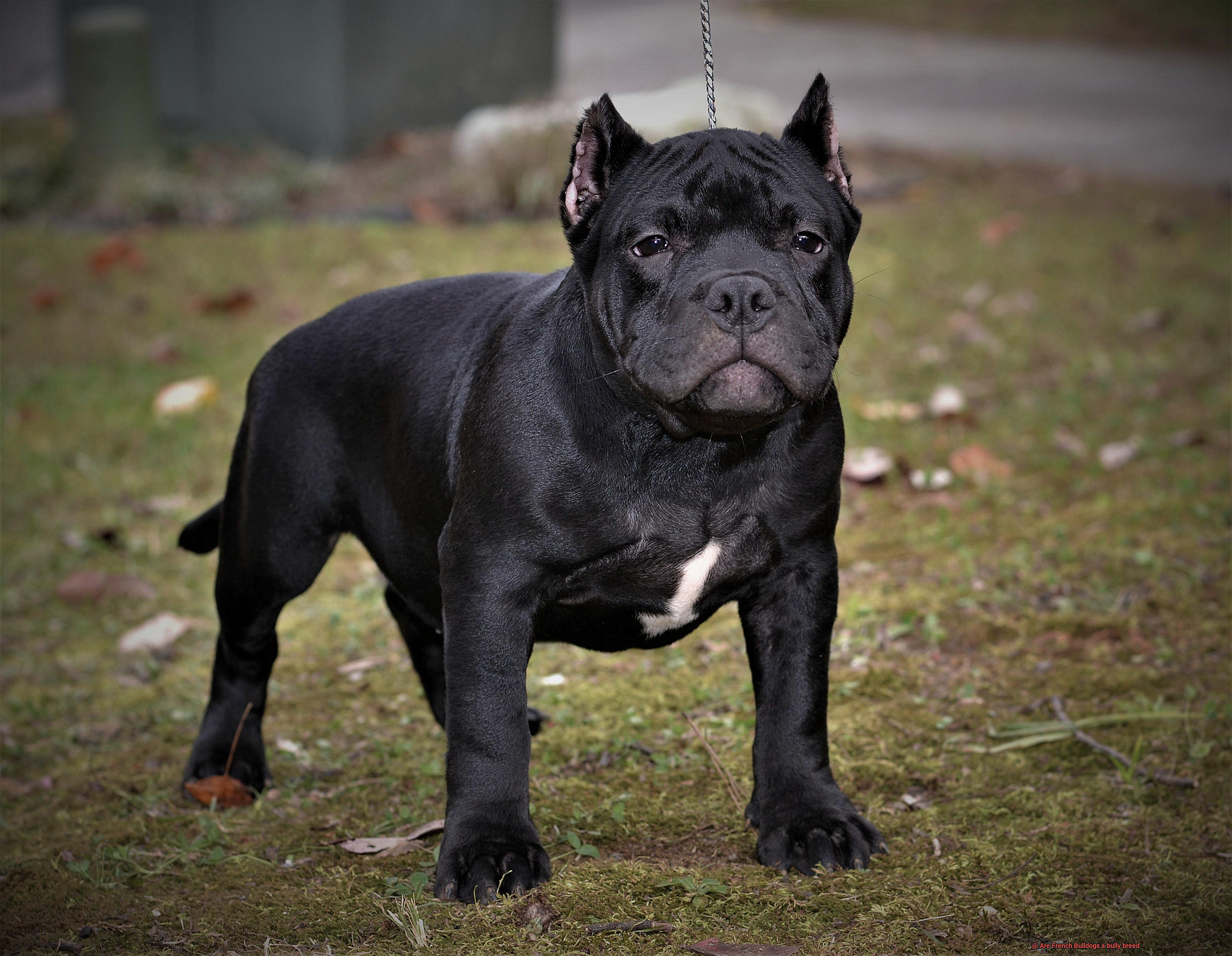
- Health issues: One of the biggest disadvantages of owning a French Bulldog is their susceptibility to certain health problems. Due to their unique anatomy, they are prone to respiratory issues, skin allergies, joint problems, and eye conditions. These health issues may require regular veterinary care and can be costly to manage.
- Heat sensitivity: French Bulldogs have short snouts, which can lead to breathing difficulties in hot weather. They are more prone to heatstroke and need extra care during the summer months. It’s essential to provide them with proper shade, ventilation, and hydration to keep them cool and comfortable.
- High grooming needs: While French Bulldogs have a short coat, they still require regular grooming to keep their skin healthy and prevent any skin issues. They shed moderately throughout the year, so regular brushing is necessary to remove loose hair and prevent matting.
- Stubbornness: French Bulldogs can be stubborn at times, which can make training a bit challenging. They have a mind of their own and may need consistent and patient training methods to overcome their stubborn nature.
AL7pBVz7Y5M” >
Conclusion
In conclusion, it is clear that French Bulldogs are not considered a bully breed. Despite their muscular build and strong appearance, these adorable dogs are known for their friendly and affectionate nature. Their playful personalities and love for human companionship make them a popular choice for families and individuals alike.
French Bulldogs may have a stocky physique, but they lack the aggressive tendencies commonly associated with bully breeds. They are gentle and sociable creatures who thrive on love and attention. Their small size also makes them well-suited for apartment living, as they do not require excessive exercise or space.
Furthermore, French Bulldogs have a reputation for being excellent with children. Their patient and tolerant demeanor allows them to interact safely and peacefully with kids of all ages. They are often described as loyal protectors who will go above and beyond to ensure the safety of their loved ones.
While some may argue that any dog can exhibit aggressive behavior if mistreated or improperly trained, it is important to note that French Bulldogs do not possess the inherent characteristics typically attributed to bully breeds. Their temperament is generally calm, easygoing, and eager to please.
In conclusion, French Bulldogs should not be classified as a bully breed. These delightful dogs bring joy and happiness wherever they go, proving that appearances can be deceiving.
